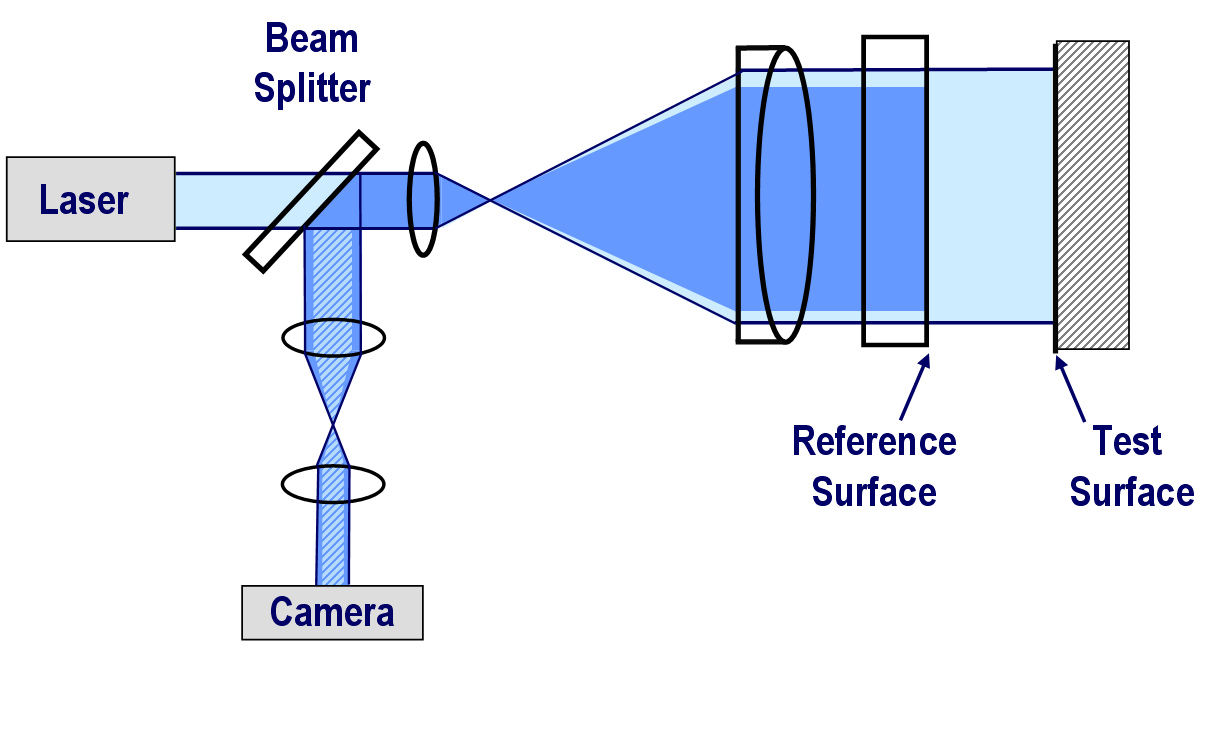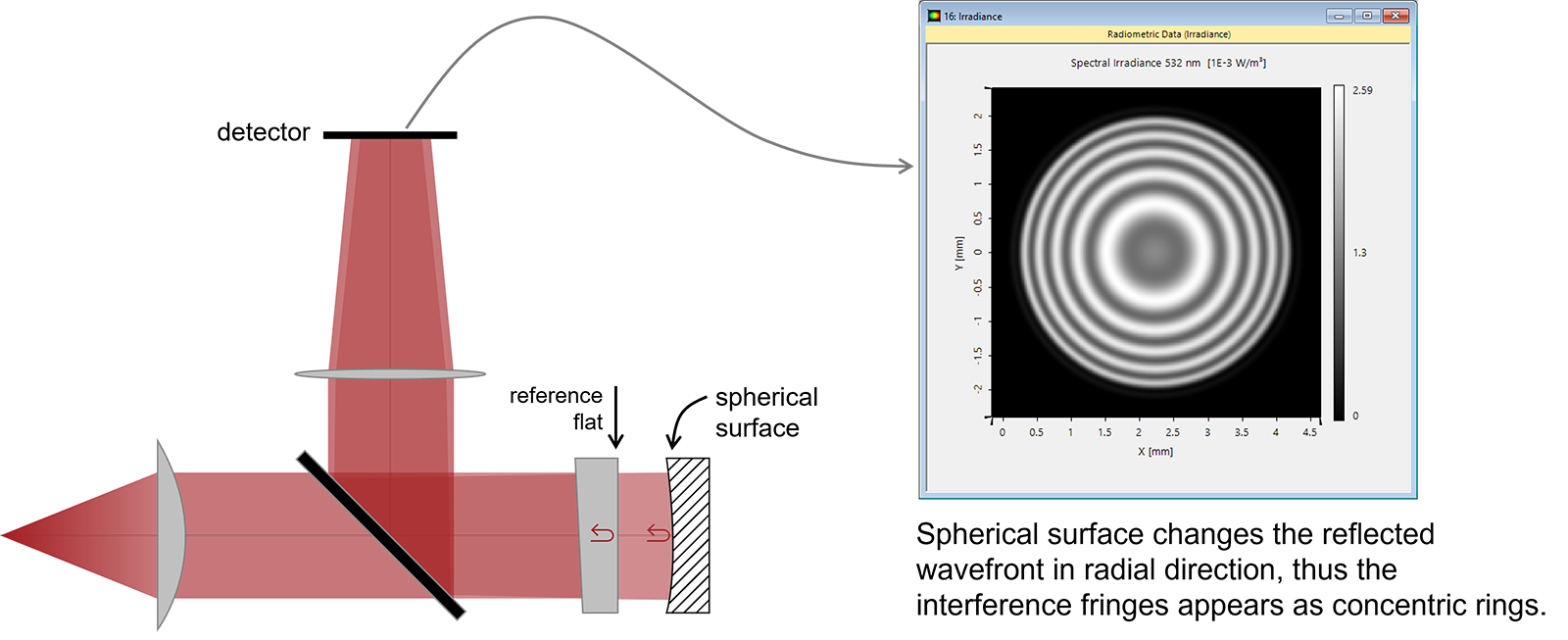Contents

Source: 4D Technology
<>
The Fizeau Interferometer
Overview
The Fizeau interferometer, named after Hippolyte Fizeau, is a widely used tool for characterizing optical surfaces such as mirrors and prisms.
Operation Principle
The Fizeau interferometer operates based on interference between reflections at a test surface and a nearby reference surface. The reference surface is typically a high-quality optical flat. By analyzing the interference pattern, deviations in the surface shape of the test sample can be detected.
Key Components
The setup of a Fizeau interferometer includes a light source (e.g., a laser or gas discharge lamp), an optical flat with a high-quality reference surface, and imaging optics for observing the interference pattern.
Comparison with Other Interferometers
Compared to the Twyman–Green interferometer, the Fizeau interferometer is simpler as it involves interference between two closely spaced surfaces. However, the Twyman–Green interferometer offers more flexibility in optimizing fringe contrast for different sample reflectivities.
Applications
The Fizeau interferometer is commonly used in industries such as optics, astronomy, and semiconductor manufacturing for evaluating the quality of optical components.
Conclusion
The Fizeau interferometer is a valuable tool in the field of optics for precisely characterizing optical surfaces and detecting deviations in surface quality.

Source: LightTrans
Feel free to comment your thoughts.



